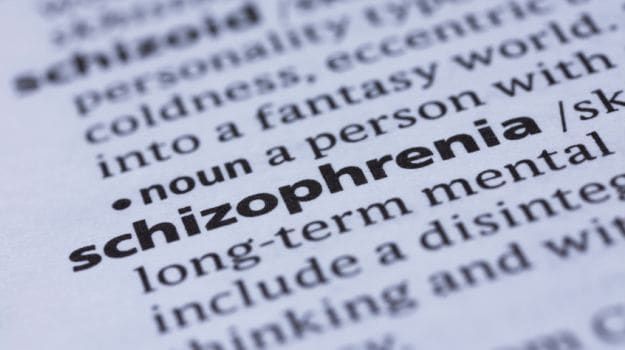31st May marks World No Tobacco Day. The consequences attached to the consumption of tabacco has been reiterated to us time and again, be it through, our peers, internet or visual media, yet the death rate associated with the consumption of tobacco doesn't seem to take a dip. It is a lifestyle habit that needs to be put to an end as it can lead to several health consequences. Also, cigarette smoking puts in risks the people near you in your environment, particularly children. Various research studies have brought to light that passive smoking is equally as dangerous as first-hand smoking. While there are various reasons why one takes up the habit of smoking, it does very less to ease the mind or unclog thoughts as commonly perceived. The onset of cancer is often linked to smoking, but that's not the only health hazard. Here are numerous ways smoking can harm your body -1. Smoking May Lead to Cancer of the Voice Box
Laryngeal cancer is the cancer arising in the larynx, or the "voice box", the area of the throat which includes the vocal cords. It is a type of head and neck cancer and is frequently diagnosed in smokers. It is also considered to be one of the 10 leading causes of cancer in Indian men. Majority of individuals with these cancers have a history of tobacco use such as gutka, khaini, cigarettes, pipes, and cigars.

2. It Triggers Risk of Committing Suicide
According to a study conducted by the Washington University School of Medicine in St Louis, nicotine in cigarettes may trigger psychiatric disorders and lead to suicidal tendencies. It reported that suicide rates declined up to 15 per cent (relative to the national average) in the United States after implementing higher taxes on cigarettes and stricter policies to limit smoking in public places.
"Nicotine is a plausible candidate for explaining the link between smoking and suicide risk," said Grucza, associate professor of psychiatry. "Like any other addicting drug, people start using nicotine to feel good, but eventually they need it to feel normal. And as with other drugs, that chronic use can contribute to depression or anxiety, and that could help to explain the link to suicide."

3. It Might Increase Risk of Schizophrenia
According to a study done by King's Institute of Psychiatry, Psychology and Neuroscience, the researchers found that daily smokers had an increased risk of psychosis. More than half - 57% - of people arriving at mental health services with their first episode were smokers, which is nearly three times the normal occurrence in the population. Smokers experienced psychosis one year earlier than non-smokers. People hope that smoking might help with the symptoms and their impaired thinking processes and possibly counter the side-effects of antipsychotic drugs. But research shows that smoking may be a causal factor in itself.

4. Fathers' Smoking May Up Asthma-Risk In Kids
Men who indulge in smoking since their adolescence may put their future children at more than three times higher risk of an early-onset of asthma, suggests a study done by University of Bergen, Norway. In the study, the researchers included more than 24,000 children and showed that both a father's early smoking debut and a father's longer smoking duration before conception increased non-allergic early-onset asthma in kids.
"Smoking is known to cause genetic and epigenetic damage to spermatozoa, which are transmissible to offspring and have the potential to induce developmental abnormalities," added lead author Cecilie Svanes.

5. Can Cause Mutation in Lung Cells
Scientists have found that smoking a pack a day of cigarettes can cause 150 damaging changes to a smoker's lung cells each year. The findings come from a study of the devastating genetic damage, or mutations, caused by smoking in various organs in the body. The highest mutation rates were seen in lung cancers, but tumors in other parts of the body - including the bladder, liver and throat - also had smoking-associated mutations, they said. This explains why smoking also causes many other types of cancer beside lung cancer.

6. Ups the Risk of Eye Diseases
Medical experts highlight the fact that smoking is linked to age-related macular degeneration (AMD), cataract, glaucoma, diabetic retinopathy and dry eye syndrome. Glaucoma is an eye condition which affects the optic nerve and gets worse over time. The main cause of glaucoma is believed to be excessive build-up of pressure in your eyes but many ophthalmologists are also blaming smoking as a major risk factor. Passive smokers may also be at risk of developing AMD. AMD occurs when a part called macula is damaged in your retina which may lead to blurred vision or in severe cases, total vision loss.

7. Risk of Heart Disease
Smokers under 50 are eight times more likely than non-smokers of the same age to have a major heart attack, warn scientists from England. The gap in risk between those who do and don't consume tobacco diminishes with age, dropping to a five-fold difference among 50-to-65 year-olds, and a three-fold gap among over-65s. "Smoking is perhaps the most powerful of all risk factors, exerting its effect much sooner than any other," stated the study.

8. Smoking Ruins Your Taste Buds
Here is another reason why you should not smoke, especially if you are fond of coffee, as smoking harms the taste buds, states a research study. Smokers do not enjoy their coffee despite the strong, bitter taste of caffeine being easily detected. It seems their ability to taste is impaired by toxic chemicals found in tobacco, even after they have quit smoking. Researchers believe the build-up of tobacco in the body could stop taste buds from renewing themselves and so harm a person's ability to recognise certain tastes, even after they have stopped smoking.

9. Can Make You Age Sooner
A recent study done by scientists have revealed that heavy smoking and alcohol use cause distinctive changes to human DNA, leading to an accelerated premature ageing. Interestingly, moderate alcohol use - about one to two drinks per day - was correlated with the healthiest ageing, while very low and high consumption were linked to accelerated ageing. Biological ageing is the progressive decline in physiological ability to meet demands that occurs over time. It is due to the accumulation of damage at the cellular level and the rate of biological ageing is determined by both environmental and genetic factors.









